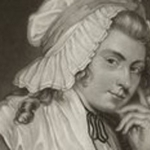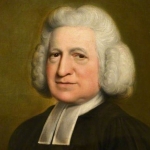1.
I am thirty this November.
You are still small, in your fourth year.
We stand watching the yellow leaves go queer,
falling flat and washed. And I remember
mostly the three autumns you did not live here.
They said I’d never get you back again.
I tell you what you’ll never really know:
all the medical hypothesis
that explained my brain will never be as true as these
struck leaves letting go.
I, who chose two times
to kill myself, had said your nickname
the mewling months when you first came;
until a fever rattled
in your throat and I moved like a pantomime
above your head. Ugly angels spoke to me. The blame,
I heard them say, was mine. They tattled
like green witches in my head, letting doom
leak like a broken faucet;
as if doom had flooded my belly and filled your bassinet,
an old debt I must assume.
death was simpler than I’d thought.
The day life made you well and whole
I let the witches take away my guilty soul.
I pretended I was dead
until the white men pumped the poison out,
putting me armless and washed through the rigamarole
of talking boxes and the electric bed.
I laughed to see the private iron in that hotel.
today the yellow leaves
go queer. You ask me where they go. I say today believed
in itself, or else it fell.
Today, my small child, Joyce,
love your self’s self where it lives.
There is no special god to refer to; or if there is,
why did I let you grow
in another place. You did not know my voice
when I came back to call. All the superlatives
of tomorrow’s white tree and mistletoe
will not help you know the holidays you had to miss.
The time I did not love
myself, I visited your shoveled walks; you held my glove.
There was new snow after this.
2.
They sent me letters with news
of you and I made moccasins that I would never use.
When I grew well enough to tolerate
myself, I lived with my mother. Too late,
too late, to live with your mother, the witches said.
But I didn’t leave. I had my portrait
done instead.
Part way back from Bedlam
I came to my mother’s house in Gloucester,
Massachusetts. And this is how I came
to catch at her; and this is how I lost her.
I cannot forgive your suicide, my mother said.
And she never could. She had my portrait
done instead.
I lived like an angry guest,
like a partly mended thing, an outgrown child.
I remember my mother did her best.
She took me to Boston and had my hair restyled.
Your smile is like your mother’s, the artist said.
I didn’t seem to care. I had my portrait
done instead.
There was a church where I grew up
with its white cupboards where they locked us up,
row by row, like puritans or shipmates
Too late to be forgiven now, the witches said.
I wasn’t exactly forgiven. They had my portrait
done instead.
3.
All that summer sprinklers arched
over the seaside grass.
We talked of drought
while the salt-parched
field grew sweet again. To help time pass
I tried to mow the lawn
and in the morning I had my portrait done,
holding my smile in place, till it grew formal.
Once I mailed you a picture of a rabbit
and a postcard of Motif number one,
as if it were normal
to be a mother and be gone.
They hung my portrait in the chill
north light, matching
me to keep me well.
Only my mother grew ill.
She turned from me, as if death were catching,
as if death transferred,
as if my dying had eaten inside of her.
That August you were two, but I timed my days with doubt.
On the first of September she looked at me
and said I gave her cancer.
They carved her sweet hills out
and still I couldn’t answer.
4.
That winter she came
part way back
from her sterile suite
of doctors, the seasick
cruise of the X-ray,
the cells’ arithmetic
gone wild. Surgery incomplete,
the fat arm, the prognosis poor, I heard
them say.
During the sea blizzards
she had her
own portrait painted.
A cave of mirror
placed on the south wall;
matching smile, matching contour.
And you resembled me; unacquainted
with my face, you wore it. But you were mine
after all.
I wintered in Boston,
childless bride,
nothing sweet to spare
with witches at my side.
I missed your babyhood,
tried a second suicide,
tried the sealed hotel a second year.
On April Fool you fooled me. We laughed and this
was good.
5.
I checked out for the last time
on the first of May;
graduate of the mental cases,
with my analyst’s okay,
my complete book of rhymes,
my typewriter and my suitcases.
All that summer I learned life
back into my own
seven rooms, visited the swan boats,
the market, answered the phone,
served cocktails as a wife
should, made love among my petticoats
and August tan. And you came each
weekend. But I lie.
You seldom came. I just pretended
you, small piglet, butterfly
girl with jelly bean cheeks,
disobedient three, my splendid
stranger. And I had to learn
why I would rather
die than love, how your innocence
would hurt and how I gather
guilt like a young intern
his symptoms, his certain evidence.
That October day we went
to Gloucester the red hills
reminded me of the dry red fur fox
coat I played in as a child; stock-still
like a bear or a tent,
like a great cave laughing or a red fur fox.
We drove past the hatchery,
the hut that sells bait,
past Pigeon Cove, past the Yacht Club, past Squall’s
Hill, to the house that waits
still, on the top of the sea,
and two portraits hung on the opposite walls.
6.
In north light, my smile is held in place,
the shadow marks my bone.
What could I have been dreaming as I sat there,
all of me waiting in the eyes, the zone
of the smile, the young face,
the foxes’ snare.
In south light, her smile is held in place,
her cheeks wilting like a dry
orchid; my mocking mirror, my overthrown
love, my first image. She eyes me from that face,
that stony head of death
I had outgrown.
The artist caught us at the turning;
we smiled in our canvas home
before we chose our foreknown separate ways.
The dry red fur fox coat was made for burning.
I rot on the wall, my own
Dorian Gray.
And this was the cave of the mirror,
that double woman who stares
at herself, as if she were petrified
in time — two ladies sitting in umber chairs.
You kissed your grandmother
and she cried.
7.
I could not get you back
except for weekends. You came
each time, clutching the picture of a rabbit
that I had sent you. For the last time I unpack
your things. We touch from habit.
The first visit you asked my name.
Now you stay for good. I will forget
how we bumped away from each other like marionettes
on strings. It wasn’t the same
as love, letting weekends contain
us. You scrape your knee. You learn my name,
wobbling up the sidewalk, calling and crying.
You call me mother and I remember my mother again,
somewhere in greater Boston, dying.
I remember we named you Joyce
so we could call you joy.
You came like an awkward guest
that first time, all wrapped and moist
and strange at my heavy breast.
I needed you. I didn’t want a boy,
only a girl, a small milky mouse
of a girl, already loved, already loud in the house
of herself. We named you Joy.
I, who was never quite sure
about being a girl, needed another
life, another image to remind me.
And this was my worst guilt; you could not cure
nor soothe it. I made you to find me.




















Comment form: